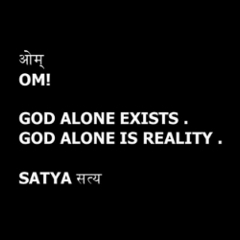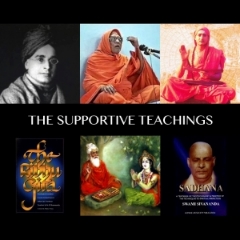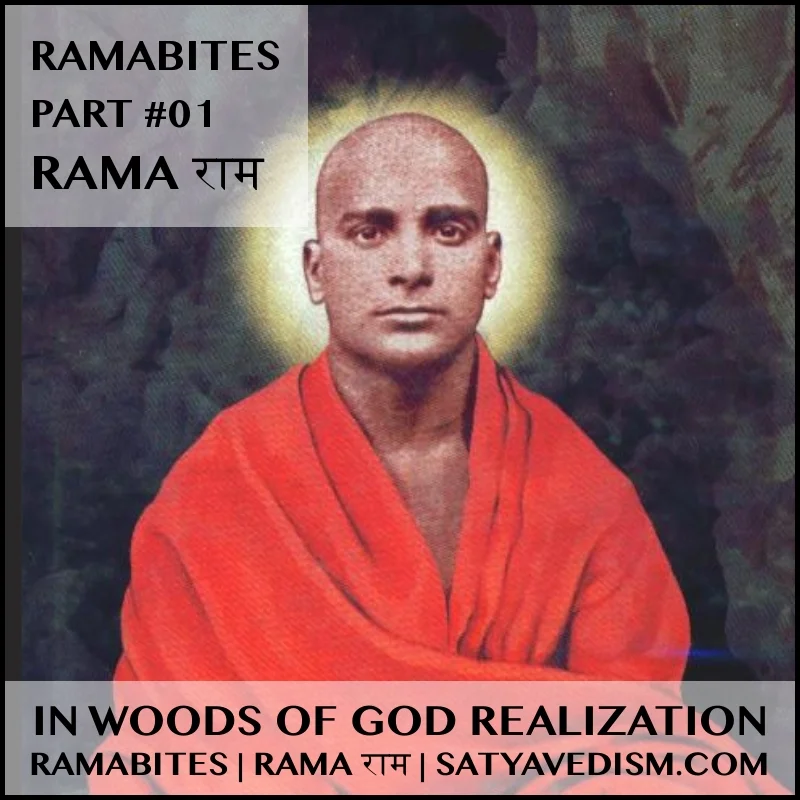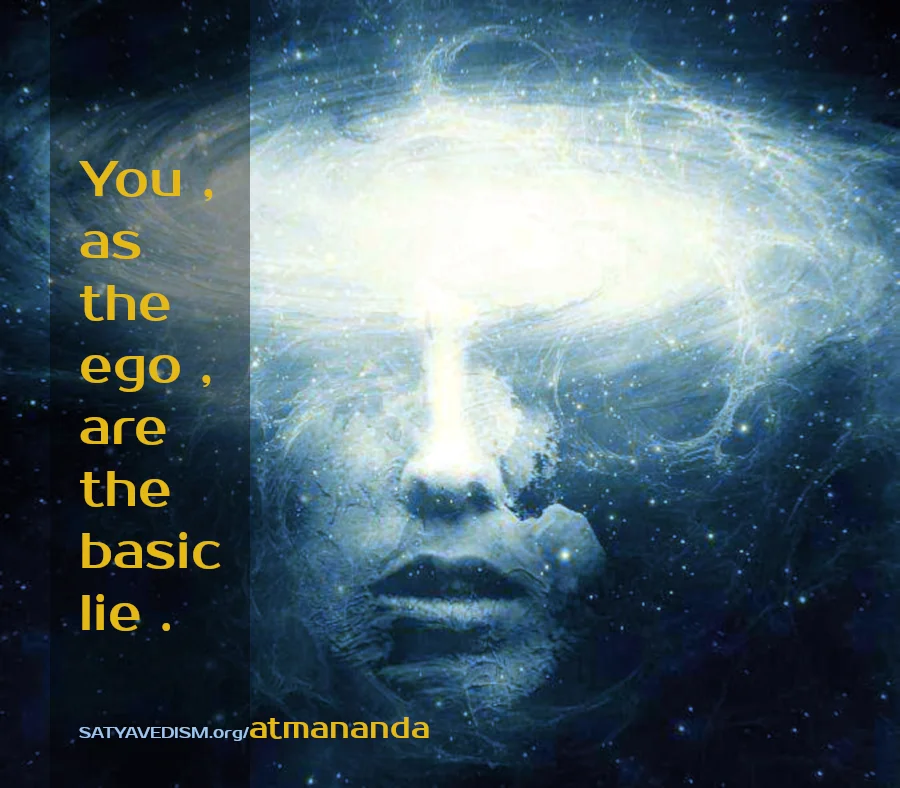UPASANA ( DEVOTION ) | IWGR IV | PART 21 OF 25
| | homeUPASANA ( DEVOTION ) | IWGR IV | PART 21 | PAGE 40-43 | RAMA राम
|| MANTRAS OF UPASANA | PART 1 ||
( 1 ) Only that Upasana is fruitful which is done from the depth of the heart . It is fruitless , if you do Upasana ( worship ) with words uttered only superficially with no force of intensity of love for GOD .
The Upasana is practiced in accordance with the condition of the mind of the Upasak ( devotee ) . The Upasana of a person desirous of salvation will be as under , according to Atharva Veda .
( A ) " May the Lord of the ( Veda ) Word , ie Brahma , today ( or now , ie at the time of the rites of the production of the retentive power of intellect ) impart to my body powers of those ( gods ) who ( being ) three * or seven * , or , according to Rigveda Sanhita IX . 114.3 , three times seven , ie , in three groups of seven each * , or according to the Taitreyi Brahmin , II . VIII , 3 , 8 , thrice seven * , or numbering , 7 multiplied by 3 , ie , 21 , divine factors * , according to the Taitreyi Sanhita VII , III , 10.5 , or , again , numbering 21 spiritual factors * go about fostering all beings or assuming all forms . "
( B ) " O Lord of the ( Veda ) word , ie , Brahma , come again together with effulgent or Brilliant Mind ; O Lord of Wealth and Food ! Delight , bestow on , bless or favor ( me ) unfailingly ; let it ( your gift ) remain in me alone or exclusively in me , the sacred learning . "
( C ) " Herein ( in this individual body or soul ) exclusively from all around expand both ( the retentive memory as well as food ) like the two ends ( tips ) of a bow ( fixed ) on the bow string ; may Brahma restrain ( the gift ) so as not to leave me ; let it ( your gift ) rest in me alone ; in me the sacred lore . "
( D ) " The speech-lore , ie Brahma has been invoked ( by us ) may ( the self-same ) Lord of speech Or of primordial ( Veda ) word ( reciprocally ) call on us ; may we stick fast ( adhered to the sacred learning ( ie , our acquired knowledge ) , let me not be deserted by ( that ) sacred lore . "
This is the meditation of Brahma in the form of the lord of the mind or the speech . When iron remains in the fire for some time , it acquires the quality of fire .
So , too , when the intellect remains in meditation in oneness with the universal Consciousness , the Lord of mind and speech , it must acquire astonishing power and energy of GOD Itself .
Whatever the mantras may be , they must not only be read and uttered . But the devotee , while reading or uttering must direct one's mind to be absorbed in the idea conveyed by these mantras . They must be read and repeated with feeling .
In Yajurveda also , it has been said :—
" O Lord ! May my mind be not diverted to any other idea or thought , except that of blissful Self , in all the three states of mind , waking , dreaming or in the deep sleep state . All the time , while walking , sitting , standing or moving , I may not have any thought other than that of GOD , the Truth . "
Similarly the other five mantras of Shu , Yaju , A-34 express the same idea .
So , too , the Gayatri mantra also conveys the same idea . In this Mantra the devotee prays ,
" We meditate on You that our intellect may be guided by You " .
Here , in the Gayatri mantra , it has to be observed that the words " Dhimahi " and " naha " both are in the plural . You will mark that a person usually meditates on Brahma Gayatri all alone in seclusion .
They why has the plural been used ? Why has it been said that " we meditate " and why not " I meditate " ? Why has it been stated " our intellect " , and why not " my intellect " ?
Here the Vedas mean to order you first to do away with your body-consciousness , egoism and personal limitations .
You have to regard the peoples all countries as your own self , and all bodies as your own body , and , then , meditate on the idea in the mantra with full consciousness of your oneness with All .
" We meditate on the most illumined and respected Form of that glorious and all-pervading GOD who guides our intellect " .
Both Mahidhar and Sainacharya have correctly interpreted it . They both have regarded the great GOD , with sun-like brilliance , to be the guide of our intellect . It who gives brilliance to the sun , guides our intellect also . It is our Atma , or Self .
In Yajurveda also the same idea have been expressed .
" I am the same Being who is in the Sun . "
You may say , " What is the use of meditating on GOD ? It is a great nuisance . We cannot deceive GOD in meditation " .
Well , do it first and see . You have to give up your body-consciousness and repeatedly concentrate on the idea " I am of the brilliance and resplendence of the Sun , my abode is the same . "
If you do so repeatedly , there is no worry or anxiety which may not be burnt and destroyed for good .
You have to merge yourselves in the idea that " I guide all the intellects " and that " I am the same who illumines the Sun and the moon " .
If you do so thrice , twice or even once a day with sincerity , there is no darkness which may not be dispelled .
While studying or handling some big job , if you sit every day in seclusion , withdraw all other thoughts and merge yourself in the Light of lights , then , believe that , distinction , reputation , fame , popularity , success and greatness will be drawn towards you without fail . There can be no doubt about it .
The Vedas have said ,
" The human is the product of one's own resolve or determination . "
Can it be incorrect ? No .
( NOTE :
1 . Three : The three regions of the earth , firmament and heaven ; their three presiding deities , Fire , Air and the Sun ; the three qualitites of Sattva , Rajas and Tamas ; the three supreme gods , Brahma , Vishnu and Mahesvara ; etc .
2 . Seven : Seven Rishis ( Sages ) seven planets , seven groups of Marut gods ; seven regions , Seven metres , etc .
3 . Three times Seven : Quarters excepting the east which is presided over by the well-known Sun , namely the South , West and North , together with their 4 side corners , presided over by the other 7 suns , counted as in the Taitiriyaranyak I , vii , 1 , 7 priests who pronounce ; and the 7 progeny of Aditya , leaving aside the 8th one , as enumerated in the Taitiriyaranyak I viii , 3 .
4 . Thrice Seven : the 7 sindhus ( seas ) , 7 regions and 7 quarters ; or 7 Planets , 7 Rishis ( sages ) and 7 groups of Maruts .
5 . 21 Divine factors : 12 months , 5 seasons , 3 regions and yonder Aditya , the 21st .
6 . 21 spiritual factors : 5 great elements , 5 vital airs , 5 senses and 5 instruments of action and one internal sense ( antah-karna ) .
UPASANA ( DEVOTION ) | IWGRUPA SERIES ➤➤ | RAMA राम |
|| THIS SCRIPTURE SERIES SOURCE || ➤
|| 1 || http://www.SATYAVEDISM.com ||
|| 2 || http://bit.ly/RAMATRUTH ||
SOURCE | SATYAVEDISM.ORG


































































































